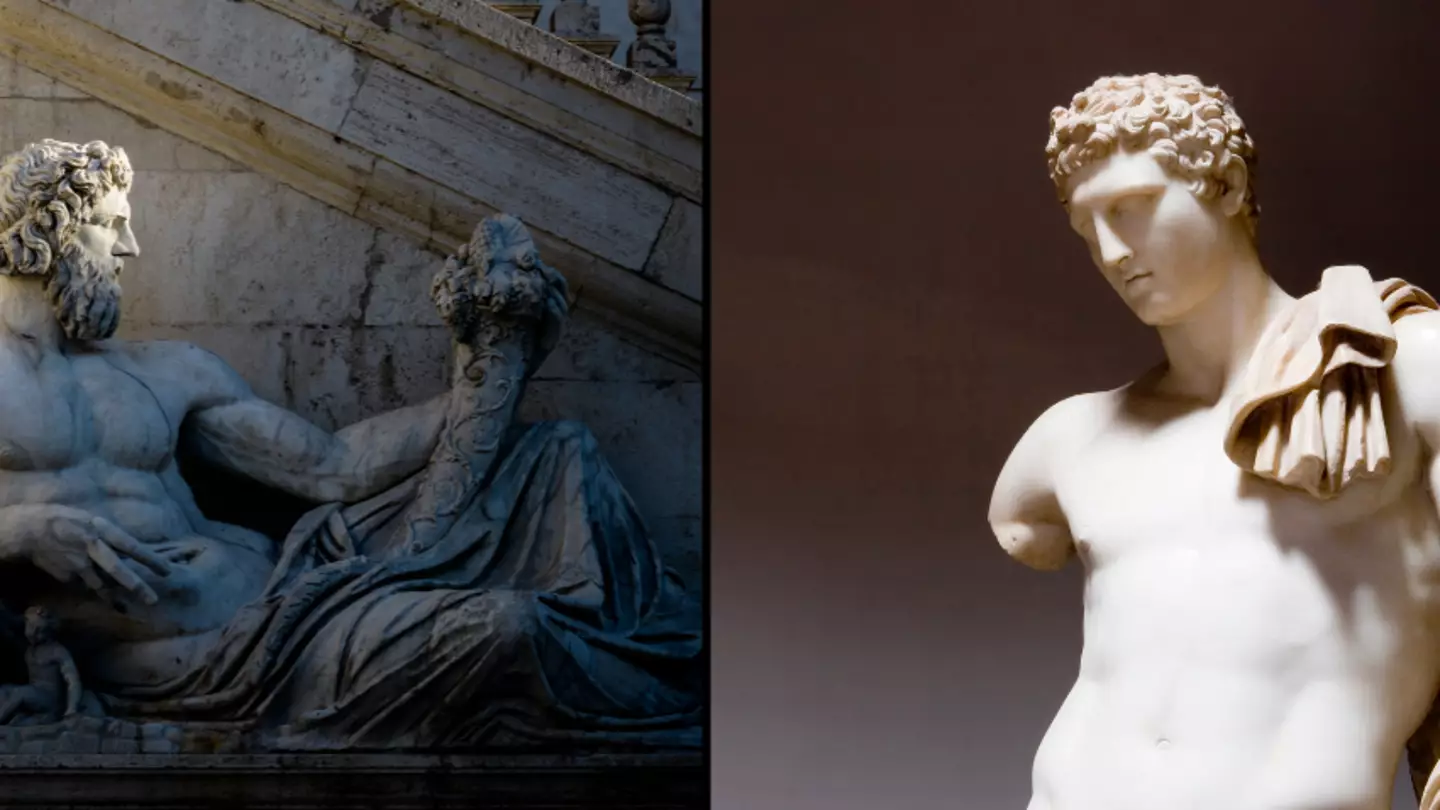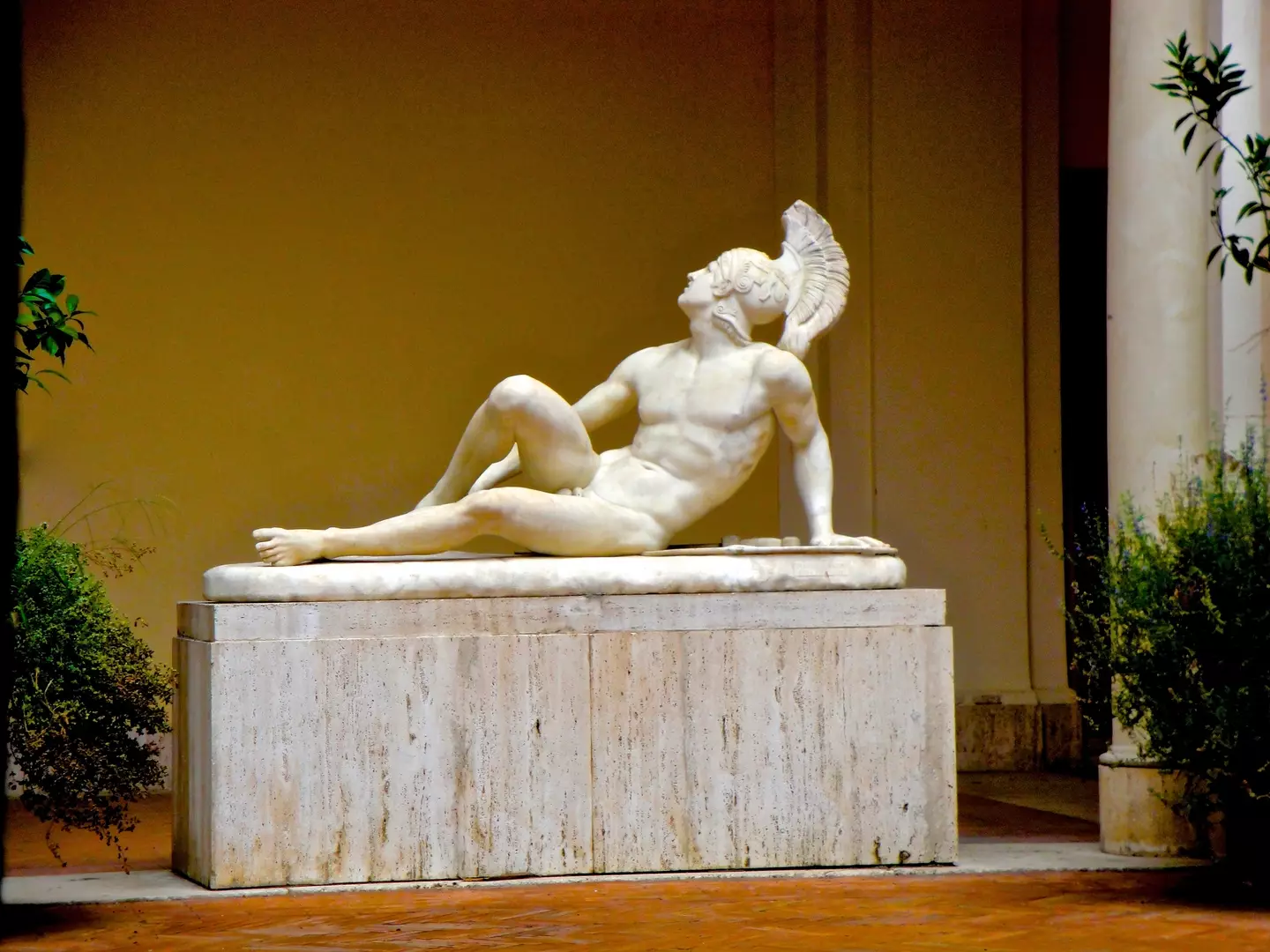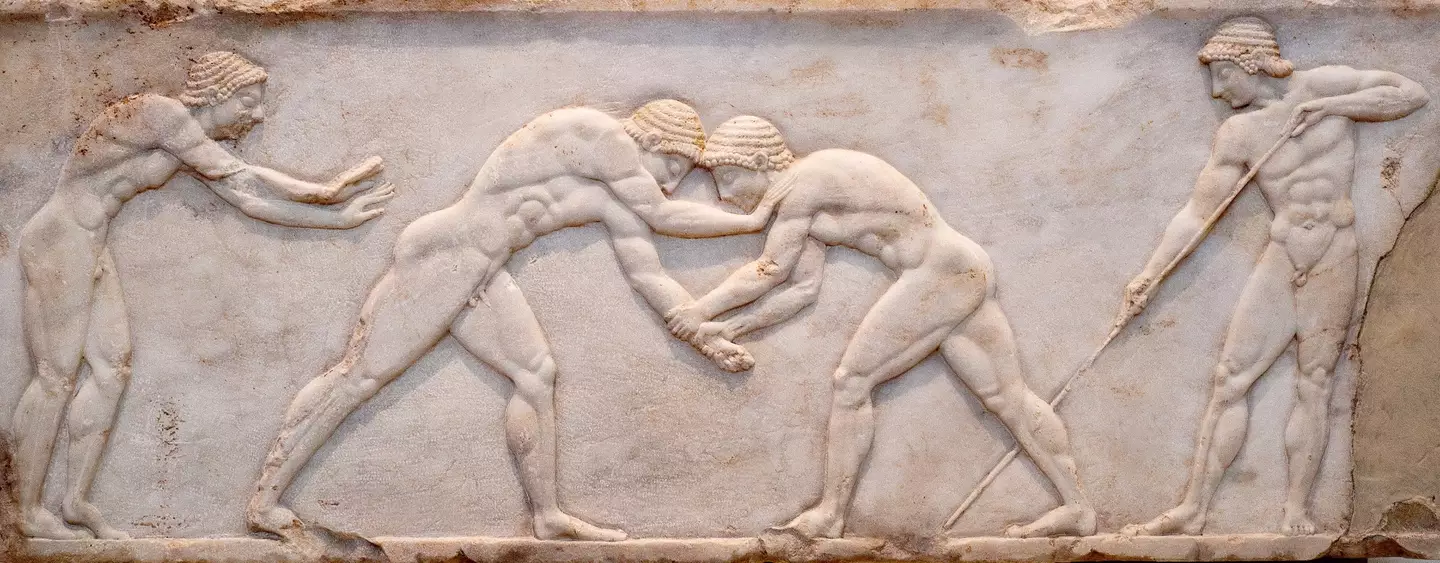
Have you ever wondered why historic statues are often completely naked?
If you've ever wandered around a museum, you might have noticed that ancient Greeks in particular are often depicted as being totally in the buff.
And there's actually a reason why this could be.

Advert
According to Tastes of History, there was a common activity that ancient Greek men did naked.
"Athletes exercised, trained and competed nude, a practice said to encourage aesthetic appreciation of the male body and as a tribute to the gods," the site explains.
"Given that gymnasia were for men only, there was no fear of the sexes being shocked or offended by nudity."
But why would they be exercising in the nude?
Apparently, there are a few reasons why this could be. And to be honest, all of them make a lot of sense.
In the book, A Visitor's Guide to the Ancient Olympics, the late Neil Faulkner provided three possible explanations.
First off, he noted that it was Greek tradition to coat the skin in oil before exercise.
It acted both as a sunscreen and prevented dirt from entering the pores. But, if you've ever tried to get dressed after coating your skin in body oil or moisturiser, you'll know it's not exactly practical and can be pretty detrimental for clothing.
Therefore it was simply good sense not to bother wearing clothes at all.
A second possibility could be all down to tradition, with Faulkner pointing out that considering the Olympic Games were dedicated to Zeus, athletes could have exercised naked to appear 'purified' by the end of the contest.
It could also have been a symbol of democracy.
Tastes of History explains: "The flaunting of one’s wealth was seen as uncouth. Stripping off the trappings of prosperity and affluence meant rich and poorer citizens could appear, on the skin’s surface at least, as equals."
There could also have been a much simpler reason, however.

The average ancient Greek owned little clothing, so why ruin their garments by using them during exercise?
After all, with the Greek climate being so warm, exercising outdoors would mean a pretty sweaty workout.
Just this week, one TikToker went viral after sharing a video detailing research about nude Greek statues and their 'tiny penises'.
She told her followers: "Have you ever wondered why so many of the Ancient Greek statues have colossal muscular physiques and yet a tiny package? Well, I have, so I did some digging.
"What I wasn't aware of was that the Greeks often presented their enemies, the Egyptians, the satire creatures, and even fools in comedies as having large appendages - so it was quite a negative thing to have, which is quite different today.
"So actually, what I discovered was that big D's bad and small D's good in Ancient Greece. But why was this?
"Turns out that in ancient Greece, having a smaller package was considered a sign of virtue, of civility, or self control or discipline.
"Meanwhile, having a bigger one was a sign of lustfulness, of gluttonous appetites and barbarism, which is quite interesting because it's different to today."
Topics: History
